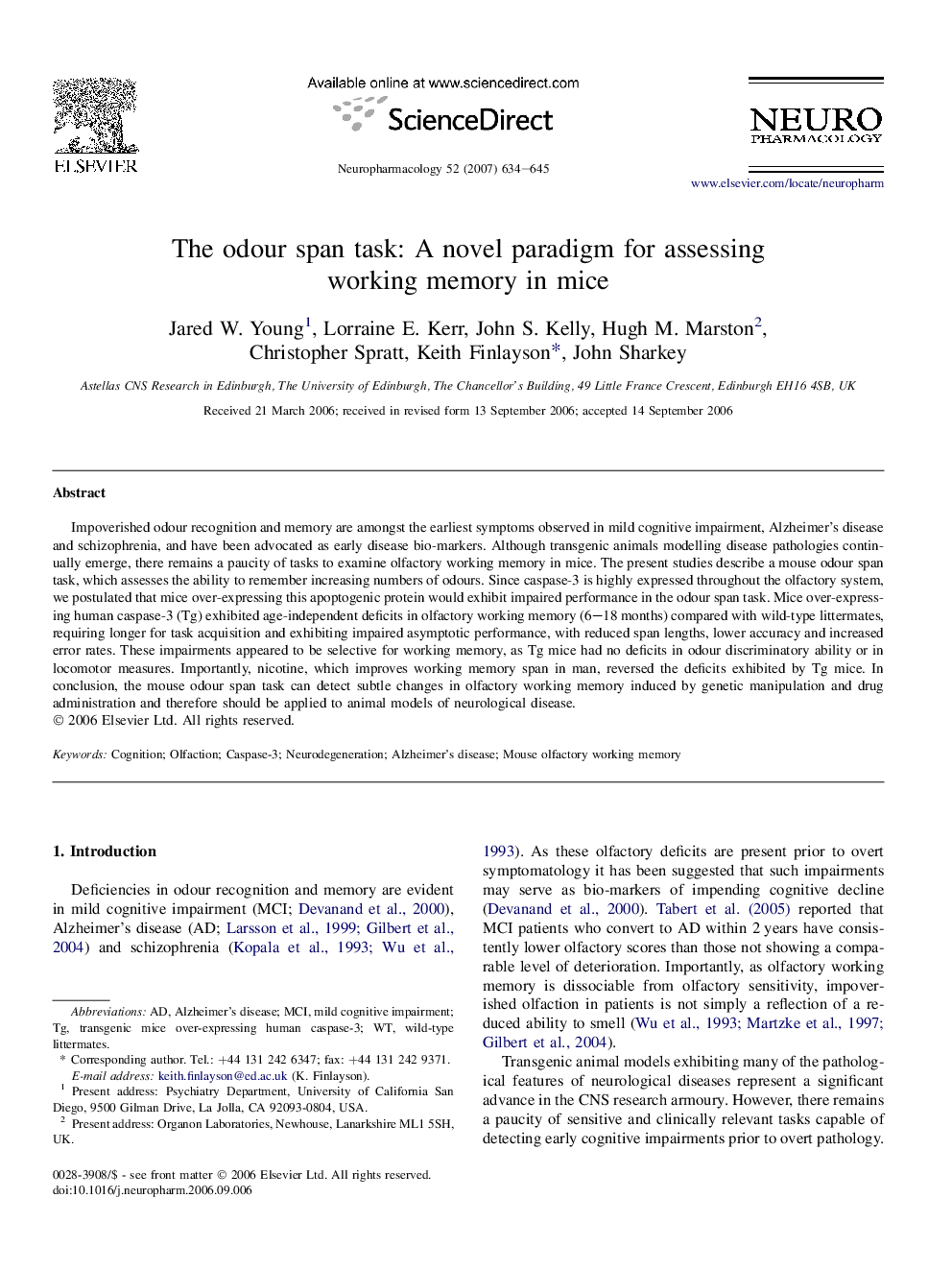| Article ID | Journal | Published Year | Pages | File Type |
|---|---|---|---|---|
| 2494831 | Neuropharmacology | 2007 | 12 Pages |
Impoverished odour recognition and memory are amongst the earliest symptoms observed in mild cognitive impairment, Alzheimer's disease and schizophrenia, and have been advocated as early disease bio-markers. Although transgenic animals modelling disease pathologies continually emerge, there remains a paucity of tasks to examine olfactory working memory in mice. The present studies describe a mouse odour span task, which assesses the ability to remember increasing numbers of odours. Since caspase-3 is highly expressed throughout the olfactory system, we postulated that mice over-expressing this apoptogenic protein would exhibit impaired performance in the odour span task. Mice over-expressing human caspase-3 (Tg) exhibited age-independent deficits in olfactory working memory (6–18 months) compared with wild-type littermates, requiring longer for task acquisition and exhibiting impaired asymptotic performance, with reduced span lengths, lower accuracy and increased error rates. These impairments appeared to be selective for working memory, as Tg mice had no deficits in odour discriminatory ability or in locomotor measures. Importantly, nicotine, which improves working memory span in man, reversed the deficits exhibited by Tg mice. In conclusion, the mouse odour span task can detect subtle changes in olfactory working memory induced by genetic manipulation and drug administration and therefore should be applied to animal models of neurological disease.
